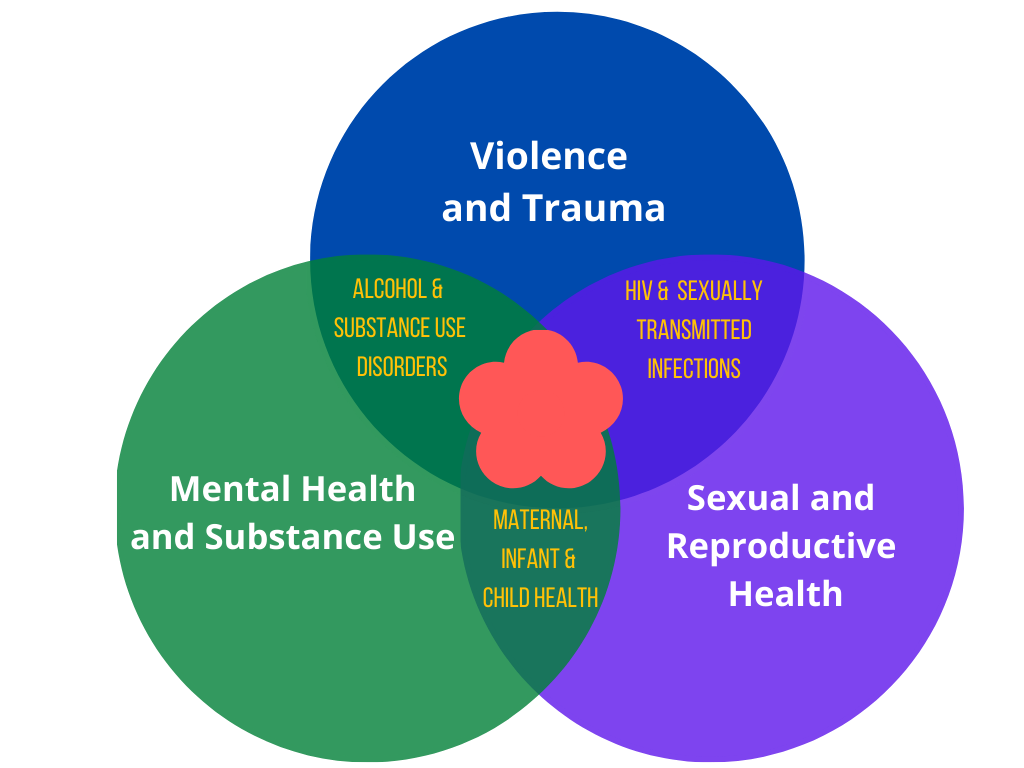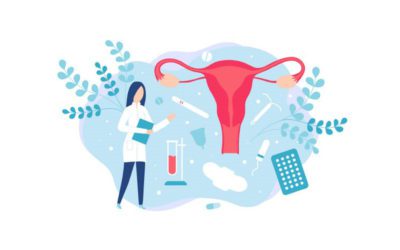The Wagman Lab
At the UCLA Fielding School of Public HealthUsing a public health equity approach to understand and address the intersecting epidemics of violence, mental health and substance/alcohol use, and sexual and reproductive health, including HIV/AIDS and other sexually transmitted infections.
Welcome to the Wagman Lab!
As part of the UCLA Fielding School of Public Health’s aim to build health and equity and drive positive change for all people, the Wagman Lab focuses on violence as a critical public health concern, both independently and as it intersects with mental health, substance use, and sexual and reproductive health.
Using a healing-centered engagement approach, we also strive to inform the development of person-centered sexual, reproductive and mental health services and programs. We work toward these goals through research, education and mentorship, and community partnership.
Violence is a Public Health Issue.
Violence, as defined by the World Health Organization (WHO), is: “(t)he intentional use of physical force or power, threatened or actual, against oneself, another person, or against a group or community, that either results in or has a high likelihood of resulting in injury, death, psychological harm, maldevelopment or deprivation.”
There are three main forms of violence: interpersonal, self-directed and collective. Each type has been found to impact people at all stages of life and exposure to violence is associated with a range of adverse health outcomes – including physical and mental impairment, disability, and premature death. From a public health perspective, our goal is to stop violence before it begins. To do so, we use epidemiologic methods to assess the magnitude and determinants of violence, implement and evaluation prevention interventions and design multisectoral policies and strategies.

Syndemic Violence, Substance Use and Sexually Transmitted Infections.
Drawing on syndemic theory, our focus extends beyond violence and trauma to examine the co-occurring epidemics of mental health and substance use and sexual and reproductive health, which includes HIV/AIDS and other sexually transmitted infections (STIs). We conduct mixed methods research to understand the clustering of these synergistic epidemics, the pathways through which they interact, their combined impact on the global disease burden and the ways in which research evidence can be integrated into public health practice and policy.
In our lab…
In our lab, we focus on interpersonal violence (such as intimate partner violence, and sexual violence), sexual and reproductive health (including HIV and STIs) and rights, and mental health and substance use (including alcohol and substance use disorders).
Interpersonal Violence
Interpersonal violence, as defined by the World Health Organization, involves the intentional use of physical force or power against other persons by an individual or small group of individuals. Interpersonal violence may be physical, sexual, or psychological (also called emotional violence), and it may involve deprivation and neglect. Acts of interpersonal violence can be further divided into family or partner violence and community violence.
To prevent these forms of abuse, we use a health equity approach to identify and promote factors that foster resilience and protect people from violence. We also seek to identify and intervene on factors that increase risk for violence, including those factors that expose some groups — such as underserved rural populations and communities that have been historically oppressed — to higher rates of violence.
The Magnitude of Interpersonal Violence
Violence is pervasive and among the leading global causes of death for people under 45 years of age. In most parts of the world, interpersonal violence contributes significantly to mortality among adolescents and young adults, and to morbidity across the entire population. Interpersonal violence also negatively impacts local and national economies, including health care expenditures.
%
One-quarter (25%) of all adults report having been physically abused as children.
%
One-in-five women reports having been sexually abused as a child.
%
One-in-three women has been a victim of physical or sexual violence by an intimate partner at some point in her lifetime.
Sexual and Reproductive Health and Rights
Sexual and intimate partner violence (IPV) can directly and indirectly impact sexual and reproductive health. Exposure to sexual violence and IPV increases a person’s risk for a range of negative sexual and reproductive health outcomes, including unintended pregnancies and abortions. These risk are especially high for people experiencing reproductive control or sexual violence. Tactics such as birth control sabotage or pregnancy pressure directly preclude someone’s ability to access and use their preferred method of contraception, thus compromising the ability to avoid an unwanted pregnancy.
Sexual violence and IPV are also associated with poor maternal and infant health outcomes (including miscarriage, stillbirth, and postpartum depression) and HIV and other sexually transmitted infections.
Mental Health and Substance Use Disorders
Violence and mental health problems are overlapping epidemics. Violence is associated with a range of short and long-term mental health outcomes, including substance use disorders which occur when a person’s use of alcohol or another drug (such as cannabis, hallucinogens, opioids) leads to health issues or problems at work, school, or home.
Experiencing sexual or intimate partner violence, for example, increases a person’s risk for anxiety, depression, post-traumatic stress disorder (PTSD), suicidal ideation and attempts, and death by suicide. Many of these mental disorders also commonly co-occur with substance use disorders which, in turn, are commonly involved in incidents of interpersonal violence, as well as relationships characterized by ongoing abuse. Use of alcohol and other drugs can facilitate or exacerbate violence, as well as be used as mechanisms for coping with violence-related trauma.
Our Research Projects
We have ongoing projects focused on campus-based violence prevention, the COVID-19 pandemic, intimate partner violence, sexual and reproductive health, and the Substance Abuse, Violence, and HIV/AIDS (SAVA) Syndemic.
Assessing the On-Campus Reproductive and Gynecological Service at UCLA
Around the world, women are at a disadvantage when it comes to accessing quality health services. The emphasis placed...
Addressing the Intersections of Alcohol Use, Intimate Partner Violence and HIV Infection in Rakai, Uganda
Uganda has one of the highest rates of alcohol use in sub-Saharan Africa but limited research has been conducted to...
Mental Health, Partner Violence, Alcohol and Other Coping Behaviors in the Time of COVID-19 in Uganda.
Intimate partner violence (IPV), alcohol use and limitations on sexual and reproductive autonomy are interrelated...
Education
To train public health students – as well as scholars from other disciplines – in the science of risk and resilience factors, health, neurobiological, and developmental sequelae, and evidence-based interventions for preventing and responding to lifetime experiences of trauma and violence, Dr. Wagman offers focused classes and academic mentorship.
Mentorship
Dr. Wagman is available to serve as:
Doctoral Advisor
MS Thesis Committee Member
Masters Advisor
MS Report Committee Member
PhD Committee Member
Field Studies Advisor
Partnerships and Collaborations
Our lab partners with many community organizations and research partners.
About Jennifer Wagman
Dr. Wagman earned her PhD in Reproductive, Perinatal and Women’s Health and her Master’s degree of Health Science in International Health from the Johns Hopkins Bloomberg School of Public Health; and a Bioethics and Health Policy Certificate from the Johns Hopkins Berman Institute of Bioethics.
Read More
Her postdoctoral training, completed at the UC San Diego School of Medicine, was in alcohol and substance use, HIV and related infections. Since 2000, Dr. Wagman has collaborated with the Rakai Health Sciences Program to: examine the relationship between intimate partner violence (IPV), reproductive health and HIV infection; create protocols for safe and ethical research on interpersonal violence; and lead intervention research to find effective, combination IPV and HIV prevention approaches in rural Uganda. More recently, Dr. Wagman expanded her research in Uganda to focus on the epidemiology of alcohol use and its association with IPV and HIV transmission, and throughout sub-Saharan Africa to examine the science of implementing proven successful violence and HIV prevention approaches. In California, Dr. Wagman leads UC Speaks Up, a public health research project to address and prevent sexual assault and dating violence on three University of California campuses. Since 2016, she has been the Director of Violence Prevention Research with the 10-campus UC Global Health Institute Women’s Health, Gender and Empowerment Center of Expertise.













